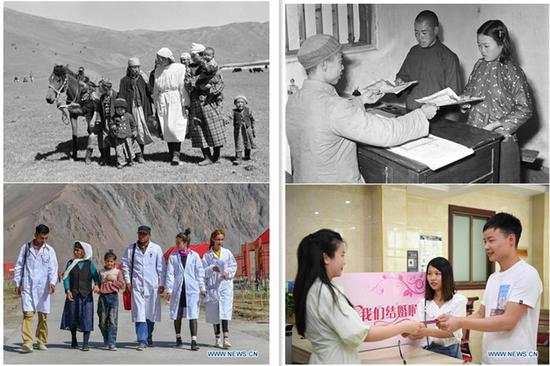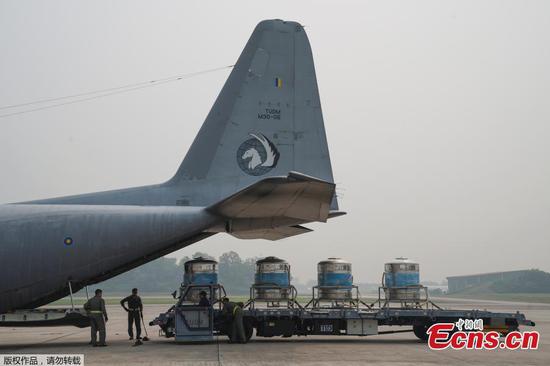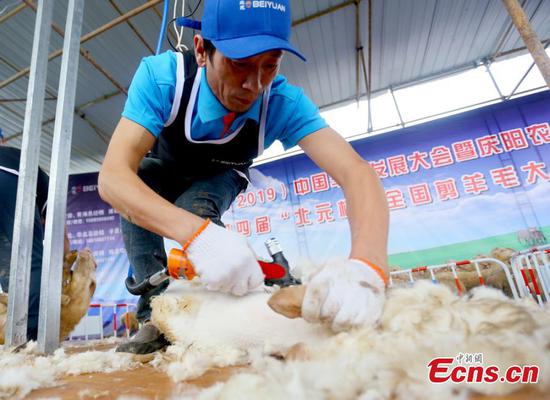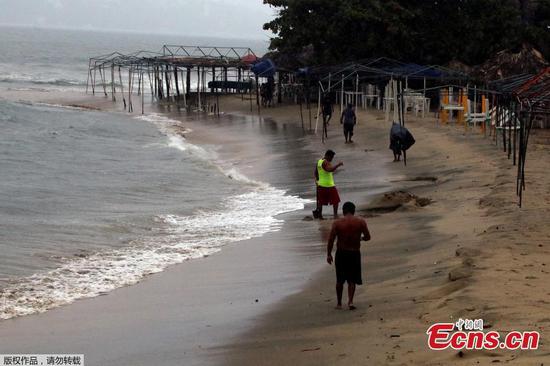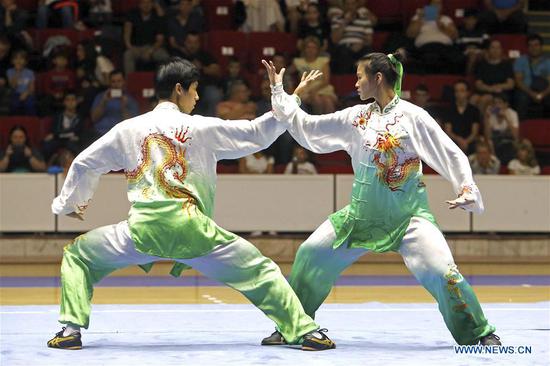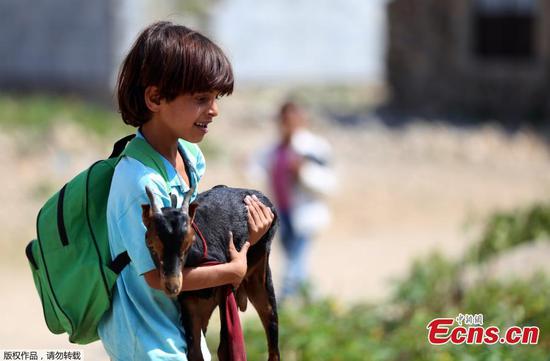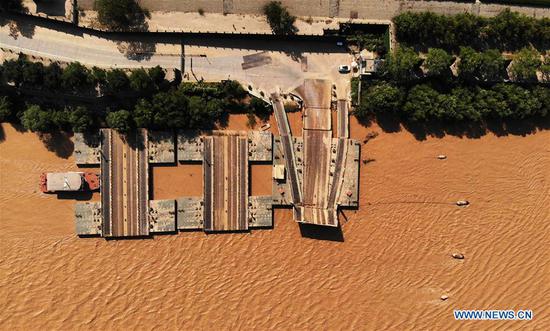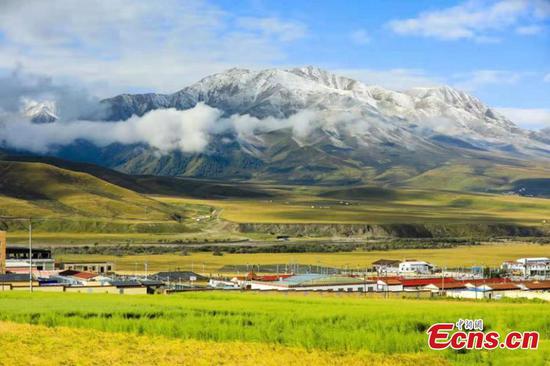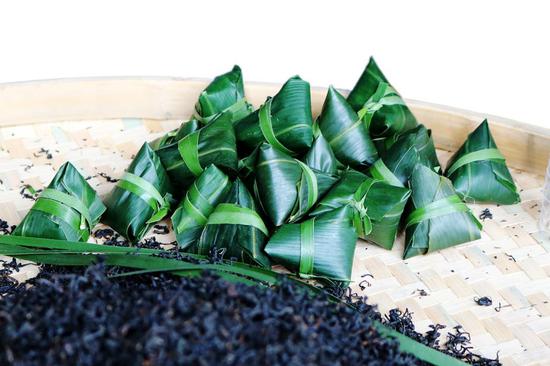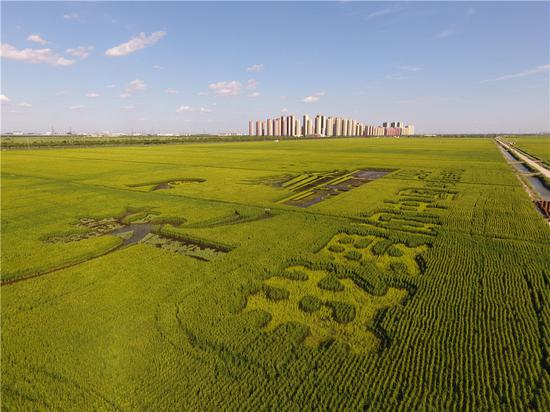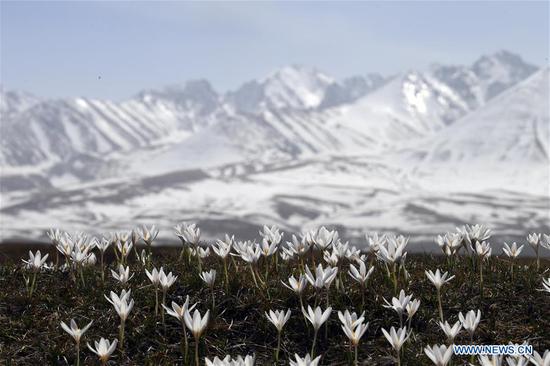
A technician collects rice seedlings for transfer to a salinity test field at the Qingdao Saline-Alkali Tolerant Rice Research and Development Center. (Photo/Xinhua)
A rice breeding program aimed at testing the resilience of rice strains that can grow in salty, frigid soil at high elevations was launched this week in the northeastern province of Heilongjiang.
The program, unveiled in a national agricultural park in Tieli city on Wednesday, is the country's first to test experimental rice species that are tolerant of saline-alkaline land-also known as saltwater rice-in frosty environments in Northeast China, according to the Qingdao Saline-Alkali Tolerant Rice Research and Development Center.
"Previous trial planting in parts of Heilongjiang province covered about 0.67 hectares at most. The new program now covers 2 hectares and is expected to expand significantly in the future," said Li Jiming, deputy director of the research center based in Shandong province.
Currently, the average annual output of saltwater rice varieties planted in salty land in Northeast China stands at about 3.75 metric tons per hectare, Li said. It is generally acknowledged that a new strain of rice attains market potential if it can yield more than 4.5 tons per hectare, agricultural experts have said.
By applying these varieties to the harsh conditions in Tieli, which is situated between the alkalized stretches of Songnen Plain and the snowcapped Lesser Khingan Mountain, Li said the program is intended to breed and select a few strains that demonstrate the highest yields and resilience.
"Freezing temperatures will be a major impediment to our cultivation," he said."Rice seedlings die out quickly as soon as frost develops on their stalks."
According to Li, there are about 2.7 million hectares of saline-alkaline land in Heilongjiang, Jilin and Liaoning provinces, the three major grain-producing areas in China, and 4 million hectares of such land in Inner Mongolia autonomous region.
"The breeding program is expected to provide valuable experience for overall rice farming in these regions," he said.
As the climate shifts and a growing population strains arable land, Chinese agricultural scientists have been striving to tap into unused land resources and develop innovative ways to produce food.
Research into rice strains that can grow in saline-alkaline soil began in the late 1980s in China. As of recently, the center in Shandong province has established eight trial planting bases across different types of salty land in five provincial-level regions across China, covering a total of 1,333 hectares of salty land.









